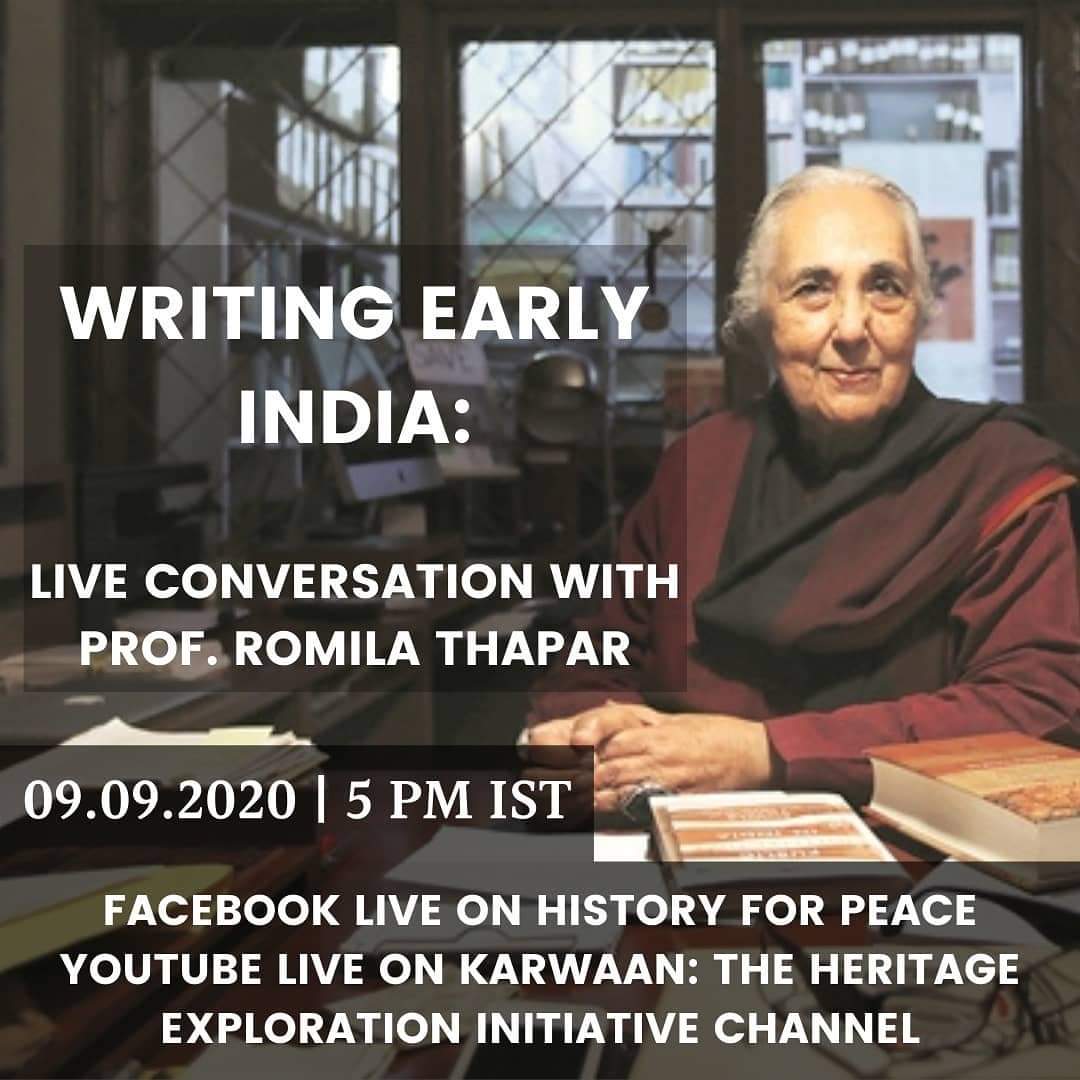In this conversation, Professor Thapar will be taking pre-submitted questions from teachers across schools based on her most recent talk titled Conversations with India’s Ancient Past (available at https://bit.ly/3j88fH9) https://www.youtube.com/watch?v=Wsu1Jc3y_sM&t=2423s
and on her work titled 𝘛𝘢𝘭𝘬𝘪𝘯𝘨 𝘏𝘪𝘴𝘵𝘰𝘳𝘺: 𝘙𝘰𝘮𝘪𝘭𝘢 𝘛𝘩𝘢𝘱𝘢𝘳 𝘪𝘯 𝘤𝘰𝘯𝘷𝘦𝘳𝘴𝘢𝘵𝘪𝘰𝘯 𝘸𝘪𝘵𝘩 𝘙𝘢𝘮𝘪𝘯 𝘑𝘢𝘩𝘢𝘯𝘣𝘦𝘨𝘭𝘰𝘰, 𝘸𝘪𝘵𝘩 𝘵𝘩𝘦 𝘱𝘢𝘳𝘵𝘪𝘤𝘪𝘱𝘢𝘵𝘪𝘰𝘯 𝘰𝘧 𝘕𝘦𝘦𝘭𝘢𝘥𝘳𝘪 𝘉𝘩𝘢𝘵𝘵𝘢𝘤𝘩𝘢𝘳𝘺𝘢.
https://www.youtube.com/watch?v=Wsu1Jc3y_sM&t=216s establishes for the first time that, with the texts we use as sources, there is a need for us to be aware of the perceptions that those earlier authors had, and their representations of how they saw the past. In other words, we have to search for how the past saw its past.... The religion based periodisation of Indian history into Hindu, Muslim and British, giving a wrong direction to Indian society, is replaced by the more scientific ancient, medieval and modern. How the past saw its own past (in the context of how we think the bards, poets and literati perceived and represented their past) is important to understand the intent and the ways in which the early Indian “intellectuals and administrators” narrated events of the past to suit colonial policy, narratives of the past taking different forms in early societies. - review of R. Thapar's book. https://www.thehindu.com/books/books-reviews/the-past-before-us-book-review/article7188690.ece
Developing sound historical consciousness is critical in our ability to effectively respond to the realities we are faced with. Active reading of a vast multiplicity of narratives, critical thinking and analysis, and questioning existing knowledge opens up our sensibilities to the pasts.
How do we write history? How has it been written so far in relation to early India? How do we bring the complexities of multiplicities in everyday classroom? How can we oppose any one linear narrative?
